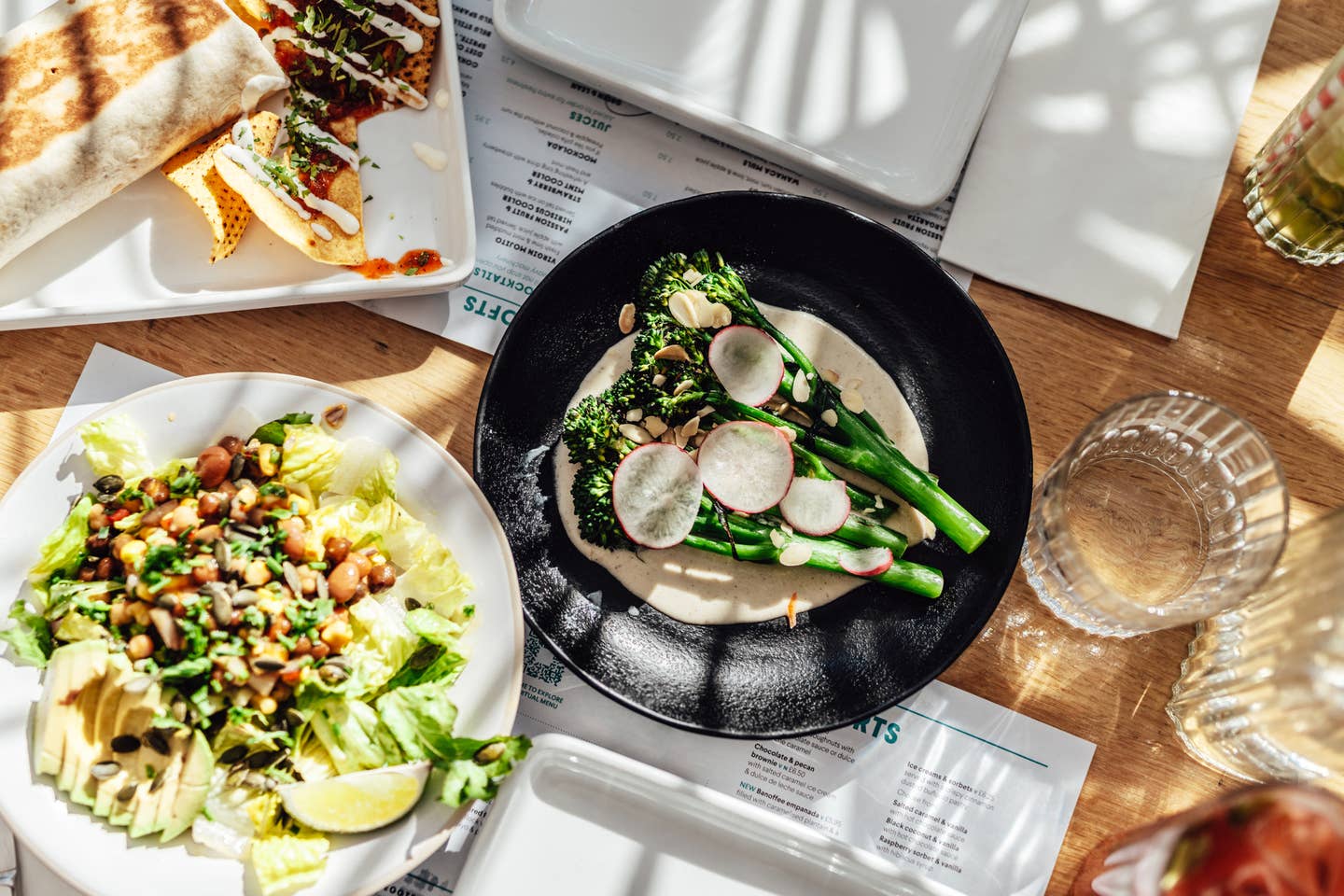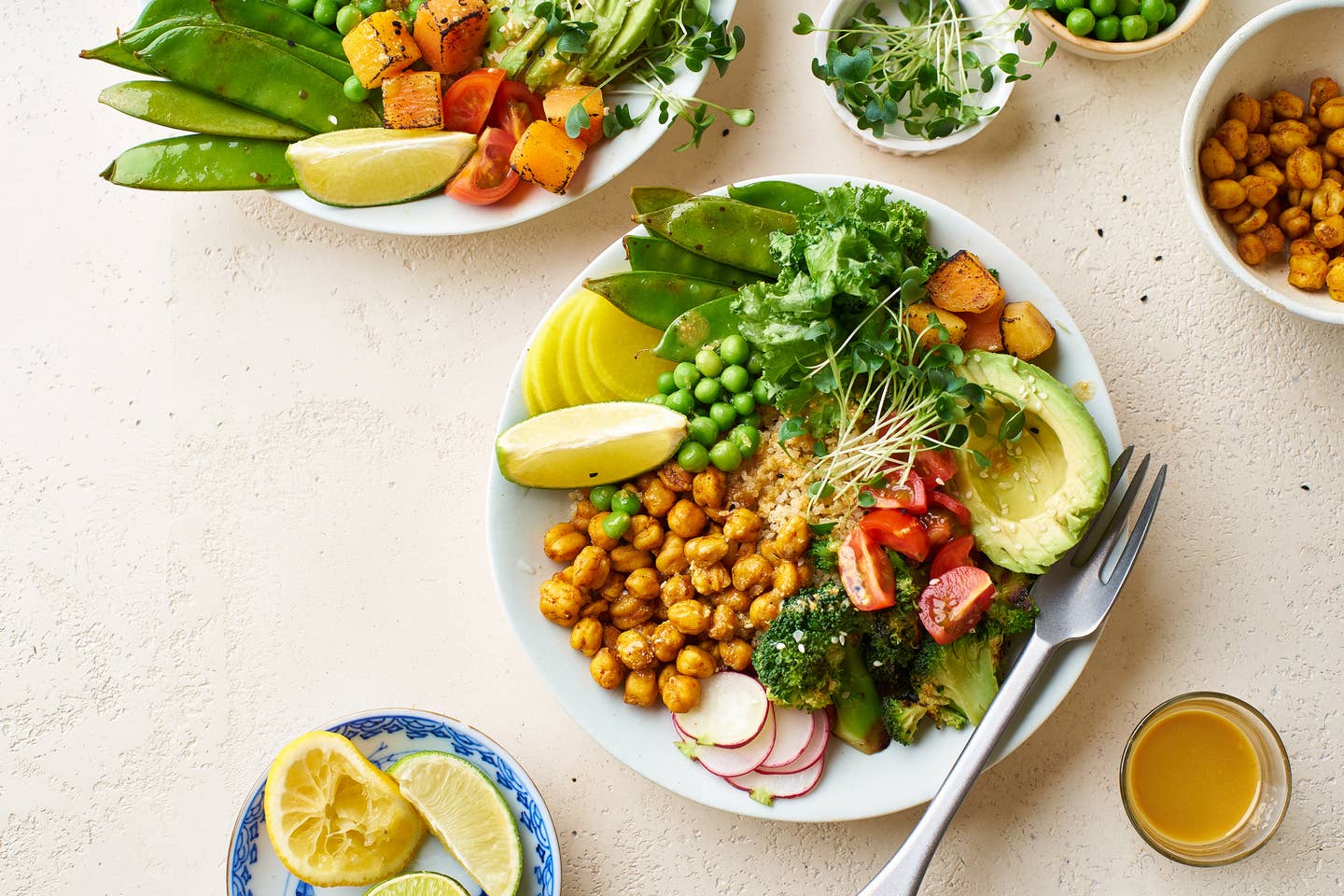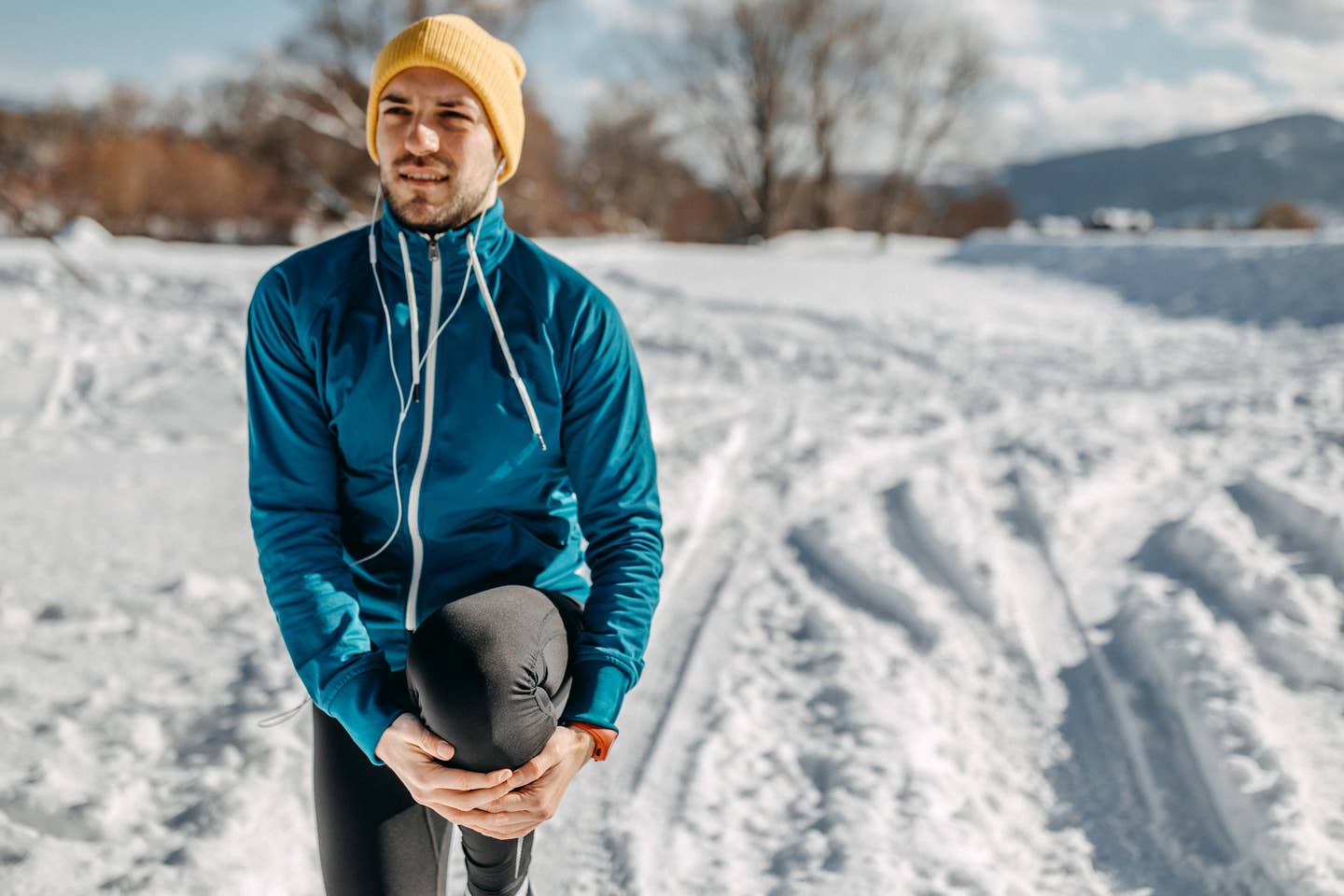
How Eating Plant-Based Can Reduce Your Risk of Breast Cancer
Soy is not bad for you. Let's just start with that misconception. In fact, soy –– or specifically the phytoestrogen in soy products like tofu and soybeans –– functions as a brake that inhibits cell growth, by acting on your beta-estrogen receptors, which means it can help suppress cancer.
In contrast, actual estrogen acts in the opposite way: By binding with alpha receptors for estrogen, they push "go" on the growth of cells. That means that estrogen functions as an "on" switch for potential breast cancer cells, while plant estrogen in soy is an "off" switch.
Why does this matter? Because there is a widespread misconception about diet and cancer, says Lee Crosby, RD, LD, a resident dietician and breast cancer expert with the Physicians Committee for Responsible Medicine (PCRM). Founded and led by Dr. Neal Barnard, PCRM has been raising awareness about the impact of diet and cancer –– especially where dairy is concerned. Barnard even went so far as to propose the USDA require warning labels on cheese since studies show that eating full-fat dairy or other estrogen-promoting foods (including alcohol) can raise your risk of cancer, especially breast cancer.
We spoke with Lee Crosby to find out what foods you can eat to help lower your risk of breast cancer.
How to Eat to Reduce Breast Cancer Risk
Lee Crosby wants you to know that dietary choices can have a positive effect on your health through habit. Her clear explanation about soy came up in the middle of a fascinating interview with the RD and breast cancer expert in the context of finding out what we can do, individually and as a society, to lower our personal risk of ever getting breast cancer.
October is Breast Cancer Awareness Month, and though the words "breast cancer" may sound scary, this month is actually a great reminder that we each have the power to take care of ourselves, and that includes our whole selves, including the part of us that we call breasts. This means exercising regularly, maintaining a healthy weight, moderating our alcohol consumption, learning other ways of coping with stress, and eating a mostly plant-based diet full of antioxidant-rich foods –– and avoiding saturated fat.
Breast cancer no longer has to be a taboo subject and it should in fact be something you talk to your doctor about all year long, but especially in October, when it's a perfect chance to call her and ask whether you should be getting regularly screened either with mammography or a more detailed scan or both. Your medical provider can only do so much, however, and the rest of your health outcome is largely up to you, and to a lesser extent, your genes.
The Two Biggest Breast Cancer Risks
According to the CDC, smoking and obesity are the top causes of cancer in America. If you've quit smoking or never started, kudos. The next step is to eat as healthy as possible, and that means adopting a mostly plant-based diet of whole foods, filling your plate with vegetables, fruit, whole grains, legumes, nuts, and seeds.
That's where the soy question inevitably comes up: Soy is one of the cleanest forms of protein on the planet, with 28.6 grams per cup, and it beats out most other beans for protein. Soy is a vital part of a healthy plant-based diet.
Is Breast Cancer Risk Genetic?
Breast cancer occurs in one in 8 women in their lifetime –– or about 13 percent of American women. The vast majority of those cases are not genetically driven (only 5 to 10 percent of all breast cancer cases are tied to hereditary factors, according to BreastCancer.org) so it's important to take steps to lower your risk, whether or not breast cancer runs in your family.
The good news: When caught in its earliest stages, stage 1 or earlier, breast cancer is 90 percent survivable, meaning not recurring within a five-year period, the closest thing science can consider a cure. Still, the numbers of new cases are staggering: An estimated 281,550 cases of invasive breast cancer are expected to be diagnosed in women in the U.S. this year, along with 49,290 cases of non-invasive (in situ, extremely early) breast cancer, according to BreastCancer.org.
Men also get breast cancer but it's much rarer: About 1 in 833 men will be diagnosed in their lifetime or about 2,650 men will be diagnosed with breast cancer in the US this year, so it's worth understanding the facts and being vigilant about symptoms, and smart about prevention.
How Estrogen and Soy Are Related
Yet as much as we know, we still have questions, including what can we do to avoid ever hearing the words: "You have breast cancer." And how to be healthy and survive it if we do get diagnosed. (Other than keeping our weight in a healthy range and eating less saturated fat?)
Lee Crosby, RD, LD, has spent most of her professional life researching the connection between diet and cancer, specifically breast cancer, ever since she herself had a scare. First, she had a biopsy in one breast, then her doctor found a "thickening" of tissue in her other breast and though both turned out not to be cancer and the course of actions was to "watch and see" her continued scanning proved to be an interesting case study of one, she said. When her diet went off the rails, for about three months, subsequent tests showed that this suspicious tissue grew. It was enough to get her to straighten out her diet and then later, that same "thickening" shrunk again. While not scientific, this experience led her down a new path.
Over the course of researching every study about cancer and diet, Crosby became an expert. Her findings convinced her to go mostly plant-based and to give up meat and dairy in favor of plant-based foods such as soy, legumes, fruit, vegetables, and whole grains. Yes, soy.
Crosby clears up what might be the biggest misconception in the diet-cancer connection, which is the role of plant estrogens found in soy once they enter the body. Plant estrogens, or phytoestrogens, are not actual estrogens, she explains, and they work on an entirely different mechanism in our bodies.
"When it comes to estrogens, especially those that our own bodies make, there are two types of receptors," Crosby explains. "Alpha receptors and beta receptors for estrogen. Alpha receptors act like accelerators and tell cells to grow, while beta receptors act as braes and tell cells to stop growing. Estrogen binds to the alpha receptors and sends the signal to grow, while plant-estrogen binds to the beta receptors and does the opposite: Tells the cells to stop growing." This is why soy has been found to be beneficial in women's diets when it comes to measuring the effect of soy foods such as tofu and soybean on breast cancer rates, especially the rate of recurrence in women who have already been diagnosed.
How to eat to reduce your risk of breast cancer: A diet that is rich in full-fat dairy and red meat is harmful more because of the saturated fat content in the animal products, Crosby explains, rather than the animal estrogens that are in dairy. She advises that while lactating cows are pumped with estrogen to keep them producing milk, the studies show that saturated fat in whole milk, full-fat cheese, fat-filled yogurt, and ice cream is the culprit when it comes to driving up breast cancer risk.
"The same foods that are bad for heart disease and drive up cholesterol are also indicated to increase the risk of breast cancer," Crosby explains. So the healthiest diet, for heart disease and cancer risk, is one of whole, plant-based foods. She also hates to admit it at parties but alcohol intake is also associated with increased cancer risk. Here is Lee Crosby's take on how to reduce your risk of breast cancer.
How Eating Plant-Based Can Reduce Breast Cancer Risk
Lucy Danziger: Can the things we eat really affect our breast cancer risk?
Lee Crosby: It absolutely can. I want to be clear up front, it can't prevent breast cancer. It's like when you put a seat belt on in the car you reduce your risk to get hurt. The data suggest that it can, the more whole foods the person is eating the less the risk. There are other lifestyle choices too but as a dietitian, foods are near and dear to my heart.
Lucy Danziger: What kind of foods do you recommend eating?
Lee Crosby: So I’m thinking things like fruits, things that kind of looked like they started out of the ground, things we can recognize at some level. These are foods like vegetables, whole grains, beans, lentils, split peas, and even tofu. We’re trying to stay away from the foods that may technically be vegan but they’re not really foods you would want to fuel your body with.
For example, soda is vegan but it’s not something you want. Potato chips and Oreos technically all come from plants and I don't have anything against Oreos specifically, it’s just these are highly processed foods that we know are not linked to good health outcomes.
Lucy Danziger: How do we biologically lower our risk of breast cancer?
Lee Crosby:: Actually, I work with a campaign called "Let’s Beat Breast Cancer" at the Physicians Committee for Responsible Medicine and it’s all about food but also other lifestyle choices we can make to reduce the risk of breast cancer. First, it's all about choosing to eat minimally processed plant foods. Second, regular exercise is so important and I’m happy to get to the science behind some of that. The third one is to limit or avoid alcohol because a glass of wine is really not in your best interest and the last one is to aim to maintain a healthy weight.
Lucy Danziger: As breast cancer is a hormonally trigger cancer, how do you feel about estrogens that find their way into our foods like dairy and then find their way into our bodies?
Lee Crosby:: Well it's interesting because there's not a huge amount of data that shows estrogen in the dairy per se to cause the issues because it's at a very low level but that's not to say it doesn't. In today's dairy industry, cows are milked deep into their pregnancy which sends estrogen levels in the milk they produce much higher. However, the bigger piece is foods high in sat fat because they will drive up the estrogen in your body naturally. These are foods like cheese and ice cream. These are the kinds of foods. I want people to avoid them because they can drive up your own body of estrogen.
Does Soy Cause Breast Cancer?
Lucy Danziger: There's still a misconception about soy and tofu. What are your thoughts on that?
Lee Crosby: Soy does contain things that have been referred to as phytoestrogens called isoflavones, a phytochemical, which don't act like the estrogen your body makes and that's good because if they did then I would say we need to steer clear of soy, however, the soy in tofu acts differently.
There are two distinct types of estrogen receptors, those are little docking sites for your estrogen and they hang out on the surface of the cells in your breast the estrogen that your own body makes binds to the alpha receptor and the soy isoflavones bind to the other one called the beta receptor and Here's how I like to think of those.
The alpha receptor is like the accelerator when your estrogen binds to it, it pushes on the accelerator and wants that cell to grow. But when isoflavone receptors bind to beta, it's like putting on the brakes, so they say slow down, we don't need to grow. Soy isoflavones want to bind to these beta receptors.
Lucy Danziger: Wow, no one has explained it better than you. Tell us about your background.
Lee Crosby:: So, I have not had breast cancer myself but back when I was about 30 I had a biopsy done on one breast and that came back with some fibrocystic types of changes so I want to see a breast surgeon at that point and they found the thickened area in the other breast and they wanted to do a biopsy right away and I was just I was done with the test so I said let’s can we just keep an eye on it. So, therefore, I researched the heck out of how I can reduce my risk. I did a thorough review of the science and I landed on a plant-based diet, eliminating alcohol, and staying active.
So, in the first three months check up on that area in my breast, there was no change. In the second check-up, there was no change, and in the third three-month checkup there was no change. Then, in the fourth three-month check-up I completely fell off the wagon. I stopped exercising, eating a meatier, sugary diet, and in my fourth-month check-up that thickened area doubled in size. This time the results came back as atypical. That was the push I needed to become a registered dietician.
Lucy Danziger: What should we eat in a day to be our healthiest?
Lee Crosby:: I love oatmeal for breakfast and I recommended this. It's loaded with soluble fiber which lowers cholesterol. I would stay away from butter and additive sugars. Sweeten your oatmeal with berries, figs, vanilla. I also love when people have greens for breakfast. I always have a salad for breakfast, baby greens with fruit on it. For a snack, nuts for most people in moderation.
A piece of fruit is the ultimate fast food. I also like veggies and hummus. I love leafy greens and collard greens. Also, you can do a really quick black bean and salsa in a corn tortilla and roll it up. A salad for lunch is optimal but load it up with chickpeas, tofu, grains, whole-grain croutons, and whole-grain toast. Give your salad the staying power. A salad at every meal is great. For dinner, take whatever you love to eat and make it vegan. If you like burgers, make a veggie burger with black beans. If you like spaghetti, make a plant-based version. I am a huge fan of cooking dark leafy greens for breast and bone health. Have your fruits for dessert.
Lucy Danziger: I don't think we would be doing our full job if we didn't tell women that one of the best things about breast cancer awareness month is going to get your screening. Talk to your doctor about breast cancer, it doesn't have to be scary. It's such a healthy thing and we can talk about it without being scared.
Lee Crosby: I agree with you completely this isn't supposed to be a scary thing in fact the survival rates for breast cancer are pretty darn good and we'd like to keep making them better.
For more plant-based advice, check out The Beet's Ask the Expert articles.
More From The Beet






